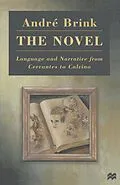The Postmodernist novel has become famous for the extremes of its narcissistic involvement with language. In this challenging and wide-ranging new study, André Brink argues that this self-consciousness has been a characteristic of the novel since its earliest stirrings. More specifically, every novel appears both to construct, and to be constructed by, its own notion of language, elaborated through all the strategies of narrative. Taking as his starting point 'the propensity for story' embedded in language, he offers stimulating new readings of novels from Cervantes to Calvino, demonstrating that in many respects the old familiar texts may be more startlingly modern, and the Postmodernist texts more firmly rooted in convention, than we tend to think.
Inhalt
Introduction: Languages of the Novel
The Wrong Side of the Tapestry. Miguel de Cervantes: Don Quixote de la Mancha Courtly Love, Private Anguish. Madame de la Fayette: La Princesse de Cleves
'The Woman's Snare'. Daniel Defoe: Moll Flanders
The Dialogic Pact. Denis Diderot: Jacques le Fataliste et Son Maitre Charades. Jane Austen: Emma
The Language of Scandal. Gustave Flaubert: Madame Bovary
Translated into Slang. George Eliot: Middlemarch
The Revenge of the Tiger. Thomas Mann: Death in Venice A Room Without a View. Franz Kafka: The Trial The Perfect Crime
Alain Robbe-Grillet: Le Voyeur
Making and Unmaking. Gabriel Garcia Marquez: A Hundred Years of Solitude Withdrawal and Return
Margaret Atwood: Surfacing Taking the Gap. Milan Kundera: The Unbearable Lightness of Being Possessed by Language
A.S. Byatt: Possession The Pranks of Hermes. Italo Calvino: If on a Winter's Night a Traveller
Notes
Bibliography
Index.
